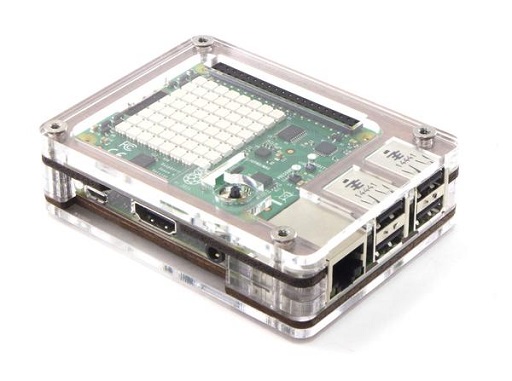- Linux
- Windows
- Android
Private Cellium ─ EPiGEN Crystal

Name: EPiGEN Crystal (official) | 자몽 (korean)
Specification
Model: Raspberry Pi 2 Model B+ Raspbierry Pi Model B
Storages — Storage in details
1T—~/Storagepartition500G—~/Repositorypartition
Live status of storages
Mounted on Type Size Used Avail Use% ~/Repository ext4 458G 208G 227G 48% ~/Storage ext4 917G 194G 677G 23%
- Wired (
EPiGEN-enx001) - Wireless (
EPiGEN-wlx001) - Wired (
EPiGEN-enx003)
Private storage and Backup point
+Work logs
- Disable
transmission webport,9090and buildproxy_passpages — Updated on 2020/07/11 03:25 - Plugin Wired Giga LAN — Updated on 2020/02/22 03:34
fresh installation— Updated on 2018/02/25 01:13
+Que to do
- Change Boot microSD memory due to physical defects
Operation manuals
Configure System log (syslog) Server
Raspbian (debian) server can be used as a machine recording log from external devices such as router.
Install syslog-ng and related mods as well.
sudo apt-get install syslog-ng
After finishing installation, edit /etc/syslog-ng/syslog-ng.conf.
source s_net { udp(ip(0.0.0.0) port(514)); }; destination d_router { file(“/var/log/router.log”); }; log { source(s_net); destination(d_router); };
source s_net defines the source where records are from 0.0.0.0 will be bind to all interfaces.
destination set your arbitrary name like d_router and set the path of log file.
log tells what source to use and what destination to take. If you have 'filter' option to utilize for more refined log results.
Create log file.
sudo touch /var/log/router.log
And restart syslog-ng service
sudo systemctl stop syslog-ng.service sudo systemctl start syslog-ng.service
For sensitive reason, you would better to stop & start service instead of restart.
Check size of log file is getting bigger and contents of log file.
For archiving and compressing log files, edit /etc/logrotate.d/syslog.ng
/var/log/router.log { rotate 4 weekly missingok notifempty compress delaycompress sharedscripts postrotate invoke-rc.d syslog-ng reload > /dev/null endscript }
Delete unnecessary files regularly
sudo crontab -e Add command line to find & delete. e.g.) Delete all .nfo file in target directory and its sub-directories at 30 minutes past every 6 hours.
30 */6 * * * /usr/bin/find /..((your path)).../ -name '*.nfo' -exec rm -f {} \;
Delete empty directory at 30 minutes past every 12 hours
30 */12 * * * /usr/bin/find /..((your path)).../ -type d -empty -delete
Delete all files except for desired file types
find . -type f ! -name '*.mkv' -delete